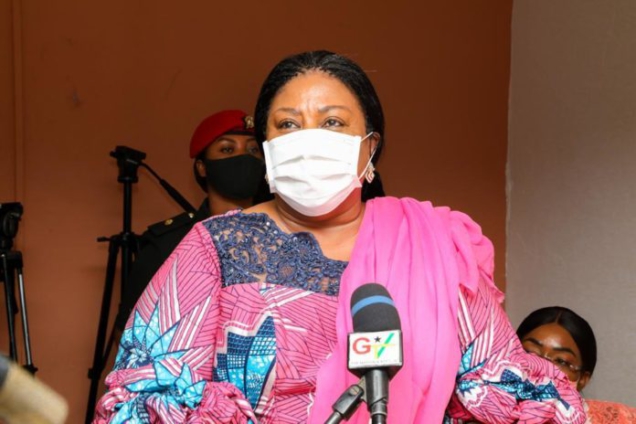The First Lady, Rebecca Akufo-Addo has on Tuesday launched a report on “Cancer in Sub-Saharan Africa: A Lancet Oncology Commission,” in Accra.
The report called on all stakeholders, especially policy makers in the health sector to unite and chart a collective response to the increasing burden of cancer in Africa.
The Commission, which comprised of national and international experts from academia and healthcare, presented a framework that can be used by governments and non-governmental organisations to increase access to cancer care, accelerate cancer prevention and increase survival in Sub-Saharan Africa.
Professor Wilfred Ngwa, the Commission Chair, said projected trends underscored the devastating costs of inaction on cancer incidence rates and cancer mortality in sub-Saharan Africa.
Professor Ngwa said while the list of barriers hindering effective cancer control in the region was long, the pursuit of robust cancer registries, effective cancer control plans, early cancer screening and detection, and the integration of palliative care into the cancer care pathway was critical.
He called for greater focus on the implementation of telemedicine and new technologies, building and training the oncology workforce, and boosting cancer research to radically improve cancer care across the region.
“Digital health is already being adopted at a high rate as seen in examples in Nigeria and South Africa, including in cancer care, where tele-oncology became a necessity for providing remote chemotherapy supervision, symptom management, and palliative care to many cancer patients.”
Dr Beatrice Wiafe Addai, Commission co-chair, said population knowledge and attitudes about cancer risk factors were critical to reducing the burden of cancer in sub-Saharan Africa.
She said public health campaigns needed to form an instrumental part of any effective cancer control programme to raise population awareness about harmful risk factors, and healthy habits and dispel misinformation.
“At the same time, transformative policies must be in place to foster cancer prevention uptake. Previous case studies have shown that civil societies could work with governments to design cancer awareness education programmes, scalable across the Sub-Saharan Africa in parallel with other initiatives,” she said.
Latest Stories
-
We’ll embrace cutting-edge technologies to address emerging healthcare needs – Prof. Antwi-Kusi
17 minutes -
Nana Aba Anamoah, Cwesi Oteng to attend Philip Nai and Friends’ charity event
22 minutes -
Environmental protection officers receive training on how to tackle climate change
25 minutes -
CLOGSAG vows to resist partisan appointments in Civil, Local Government Service
2 hours -
Peasant Farmers Association welcomes Mahama’s move to rename Agric Ministry
2 hours -
NDC grateful to chiefs, people of Bono Region -Asiedu Nketia
2 hours -
Ban on smoking in public: FDA engages food service establishments on compliance
2 hours -
Mahama’s administration to consider opening Ghana’s Mission in Budapest
2 hours -
GEPA commits to building robust systems that empower MSMEs
2 hours -
Twifo Atti-Morkwa poultry farmers in distress due to high cost of feed
2 hours -
Central Region PURC assures residents of constant water, power supply during yuletide
2 hours -
Election victory not licence to misbehave – Police to youth
2 hours -
GPL 2024/2025: Nations thrash struggling Legon Cities
2 hours -
Electoral offences have no expiry date, accountability is inevitable – Fifi Kwetey
2 hours -
Ghanaians to enjoy reliable electricity this Christmas – ECG promises
2 hours

